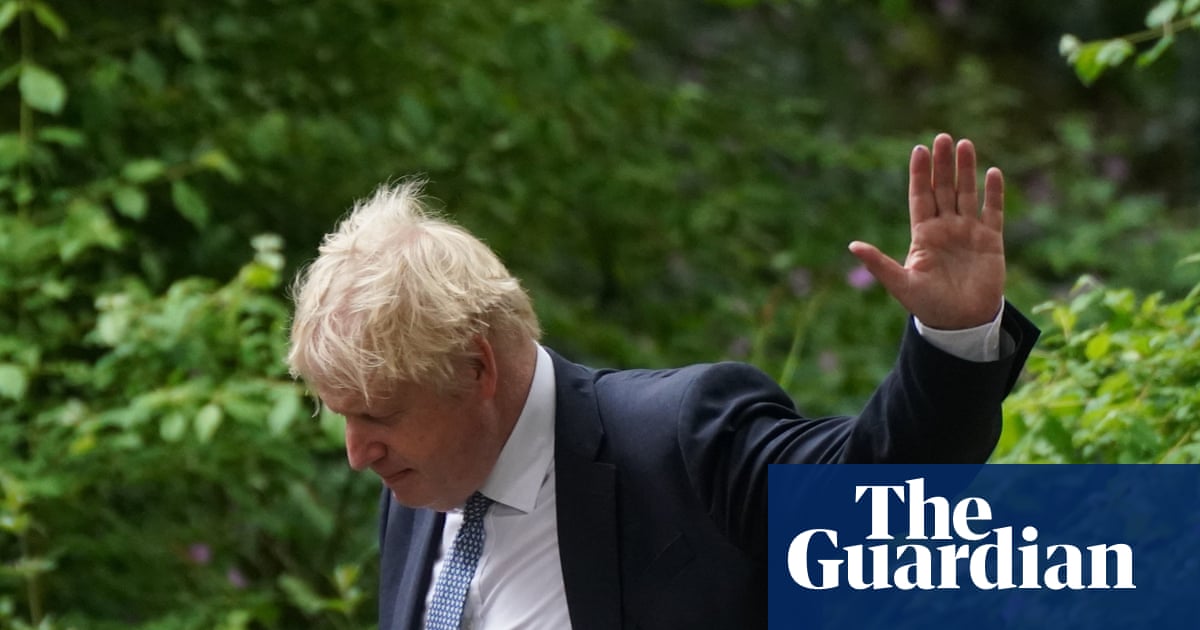
Boris Johnson is expected to announce on Thursday that the Ministry of Defence has been awarded a multi-year funding settlement, after it emerged this week that several billions would be cut from the aid budget.
The settlement is expected to last four years and the sums involved are understood to be subject to last-minute negotiation, amid speculation that the defence secretary, Ben Wallace, has secured an above-inflation increase.
Wallace has argued strongly – with the support of the ousted former No 10 adviser Dominic Cummings – that the MoD needs a multi-year settlement after the chancellor, Rishi Sunak, suddenly ditched a cross-government spending review last month.
The defence secretary, a longtime ally of Johnson’s, appears to have won the backing of Downing Street for extra investment in drone technology and upgrading the Trident nuclear weapons system, at a time when the prime minister is seeking to reset his government following the departure of Cummings at the end of last week.
Sources indicated that an announcement from Downing Street was coming in the next 24 hours, but cautioned against speculating on the exact sums involved as the settlement was being finalised. One report suggested the sum could be £14bn extra over the next four years, implying a settlement well above inflation.
The MoD’s budget for 2020-21 is £41.5bn, and the Conservative party promised in its election manifesto last year to lift spending by 0.5 percentage points above inflation each year during the parliament, implying an increase in spending of about £500m next year.
But that promise was made before the Covid-19 pandemic struck, leaving the public finances decimated, and it had been unclear if it would hold.
The former foreign secretary Jeremy Hunt said he welcomed reports that the MoD could get an above-inflation settlement, tweeting: “Diplomacy is often cold-hearted and transactional so post-Brexit we will need to have something to bring to the table. What better than our world-class armed forces?”
This week it emerged that the Treasury wanted to abandon a long-held commitment to keep aid spending at 0.7% of GDP and cut it to 0.5%. The change would cost a few billion on top of the £2.9bn that has already been lost from the budget as the economy has shrunk because of the pandemic.
The MoD has a shortfall of £13bn in its equipment budget, according to the National Audit Office. It wants to advance a host of drone-related projects, partly to emulate the success that countries such as Turkey have had with their own programmes. It also wants to upgrade Britain’s Trident nuclear warheads for the 2030s.
Experts say it is more expensive for the MoD to agree annual funding settlements because equipment programmes run over many years and need certainty of funding. Malcolm Chalmers, from the Royal United Services Institute thinktank, said: “So much of what the MoD does, particularly on procurement, relies on being able to write multi-year contracts with suppliers. You can’t plan properly if you don’t have certainty of funding.”












